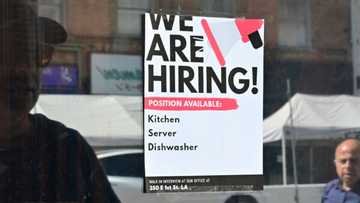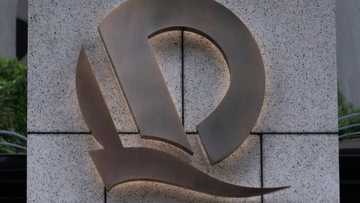Germany bets on tax cuts to boost ailing economy

Source: AFP
PAY ATTENTION: Have you recorded a funny video or filmed the moment of fame, cool dance, or something bizarre? Inbox your personal video on our Facebook page!
Chancellor Olaf Scholz's government on Tuesday agreed a huge tax relief programme for companies in a bid to revive Germany's sputtering economy.
The package would ease the burden on "small and medium-sized enterprises by around seven billion euros ($7.6 billion) per year", the government said in a statement.
While coalition parties have haggled over the extent of the tax cuts in recent months, Germany's economy has flatlined.
Europe's largest economy stagnated in the second quarter of 2023, having dipped into recession around the turn of the year.
The slowdown has come as Germany struggled to cope with the impact of the Russian invasion of Ukraine last year, which sent prices for energy and food soaring.
The sluggish growth figures were reason for the German government to go on the "offensive", Scholz said at a press conference on the first day of a ministerial retreat outside Berlin.
PAY ATTENTION: Follow us on Instagram - get the most important news directly in your favourite app!
The tax cuts -- part of a 10-point plan put forward by the government -- were intended to "stimulate growth for our country" and make sure companies made the decision to invest in Germany, Scholz said.
Among the measures agreed were a premium for energy-saving investments, and rule changes to make it easier for companies to write off losses.
'Turnaround potential'
Recent disappointing data have added to concerns that Germany will drag down the eurozone's economic performance this year, with the International Monetary Fund predicting it will be the only major advanced economy to shrink in 2023.
"We take it seriously that Germany is growing less dynamically than others," Finance Minister Christian Lindner said at the press conference.
The country however had a "huge turnaround potential", which would be unlocked via the targeted relief package, Lindner said.
The pain has been felt particularly acutely in recent months in Germany's key industrial sector, as exports have plummeted against a backdrop of high inflation and subdued global activity.
Consumer prices rose at a 6.2-percent pace in July -- down from last year's peak but still very elevated.
The post-coronavirus recovery in key trading partner China has meanwhile lost much of its momentum.
With the outlook still gloomy, the government has come under pressure to carry out more thorough reforms to breathe new life into the economy.
The recent crisis had "deepened structural problems that have existed for a long time", the influential BDI industry lobby said recently.
Among the concerns raised by business are continuing high energy costs, cumbersome regulations, a lack of skilled labour and a slow shift to a digital economy.
The government sought to address some of these issues in its 10-point plan, which noted efforts to speed up the expansion of renewable energy capacity and steps to reduce bureaucracy.
In June, Germany passed a law easing immigration rules for skilled workers in a bid to counter industry-wide shortages.
PAY ATTENTION: Сheck out news that is picked exactly for YOU ➡️ click on “Recommended for you” and enjoy!
Source: AFP



